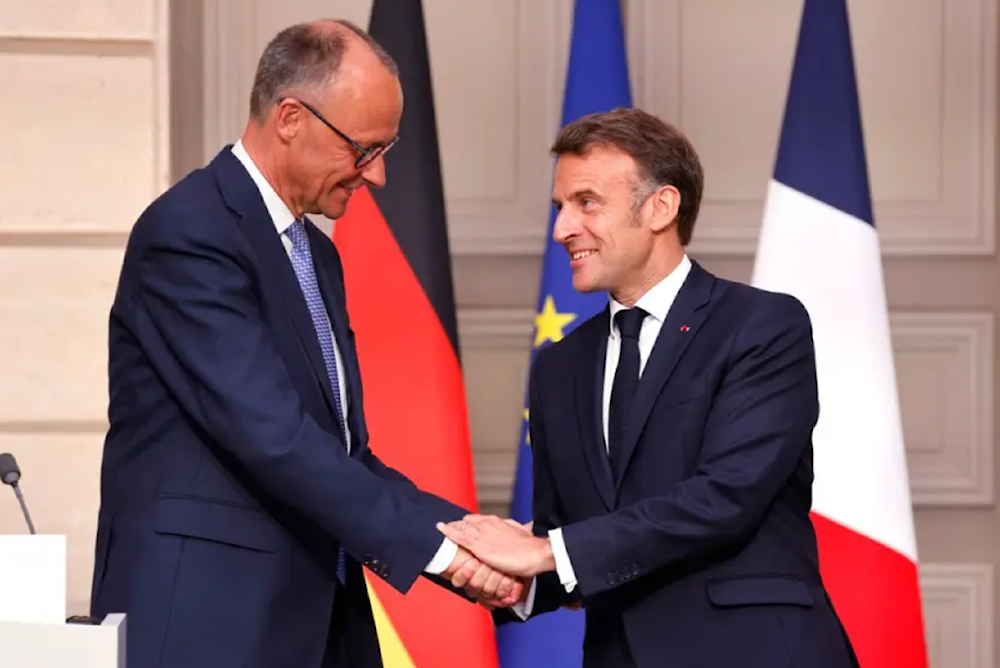France, Germany to form defense, security council for strategic issues
Merz and Macron have pledged to deepen Franco-German defense cooperation amid the Ukraine war and broader European security concerns.
-

Germany's newly elected Chancellor Friedrich Merz and France's President Emmanuel Macron shake hands at the end of a joint press conference at the Elysée presidential palace in Paris (AFP)
President Emmanuel Macron and Germany’s newly appointed Chancellor Friedrich Merz pledged on Wednesday to strengthen defense cooperation during Merz’s first official visit abroad to Paris.
Their meeting comes as Europe works to bolster its defence in response to the ongoing war in Ukraine and growing concerns about the reliability of US security guarantees under former President Donald Trump.
During a joint press briefing, Macron said, "We will set up a French-German defence and security council to meet regularly to bring operational responses to our common strategic challenges."
Merz, who took office on Tuesday, is a staunch pro-European, a supporter of transatlantic ties, and a backer of Ukraine. He has vowed to revitalize Germany’s international role following six months of political stagnation.
"We will take joint measures to further enhance Europe's security and defence capabilities," Merz stated before departing for Poland later that day.
'Coalition of the willing'
France and the UK have been leading talks within a “coalition of the willing” made up of 30 countries, exploring the potential deployment of troops to help secure any future ceasefire in Ukraine.
When asked on Tuesday about Germany’s potential role in influencing peace negotiations in the Ukraine conflict, Merz pointed to the established framework of cooperation between Berlin, Paris, and London.
He emphasized his commitment to intensive consultations with France and the UK, and added, “If include the Poles, then it will be even better."
A term with highly fragmented political environment
Merz's policy priorities include boosting defense expenditures and launching a €1 trillion infrastructure investment initiative financed through borrowing. Yet, despite securing parliamentary backing, he enters office in a highly fragmented political environment.
Recent polling shows public approval for his leadership hovers at just 38%, reflecting a cautious electorate amid economic stagnation, rising inflation, and growing momentum from the far-right Alternative for Germany (AfD).

 2 Min Read
2 Min Read








